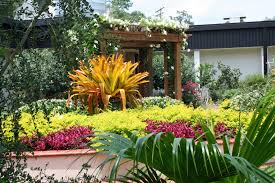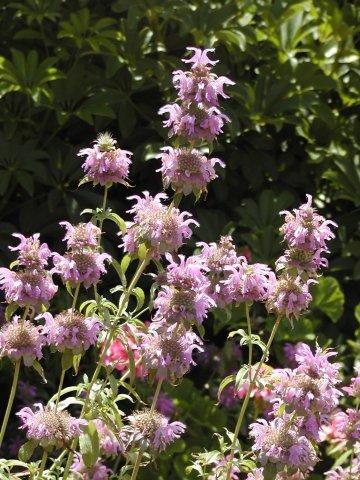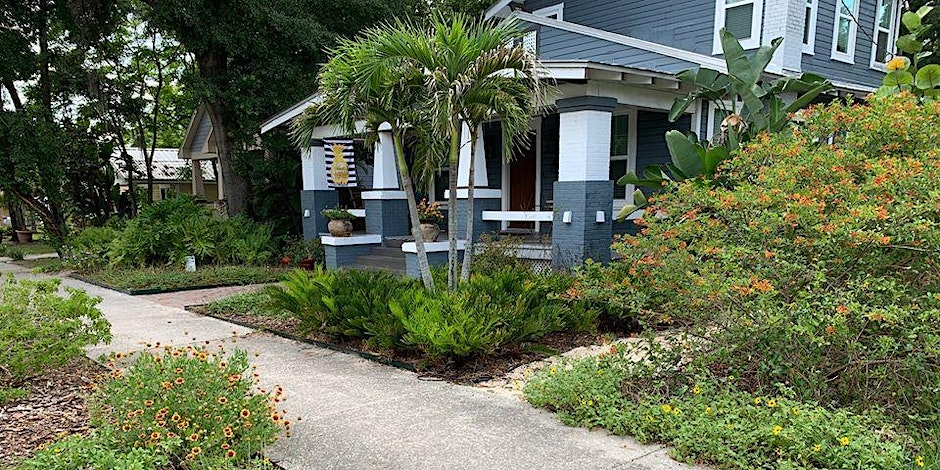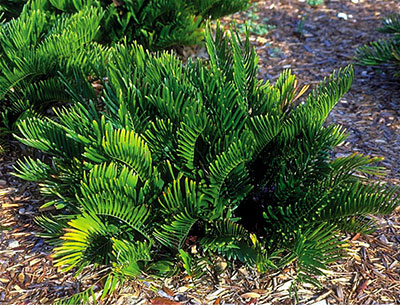
If you’ve been thinking about updating your landscaping this spring, check out a new app from the Florida-Friendly Landscaping Program before you start digging. The free app, which can be customized by ZIP code, recommends plants by type, shape, flower color, their need for sun or shade, and Florida native status.
An initiative of the University of Florida Institute of Food and Agricultural Sciences Extension and the Department of Environmental Protection, the app is designed to help Floridians create eco-friendly gardens and yards. Gardeners who use FFL principles minimize the use of fertilizer, which reduces the nutrients entering nearby stormwater systems that impact streams, lakes and, ultimately, Tampa Bay. FFL plantings also create habitat for wildlife such as bees, butterflies and birds and allow gardeners to conserve water.
Getting started on your eco-conscious garden
The FFL program consists of nine simple core principles: right plant, right place; water efficiently; fertilize appropriately; mulch; attract wildlife; manage yard pests responsibly; recycle; reduce or manage stormwater runoff; and protect the waterfront.
If you’re wondering where to begin, know there’s no need to redo your entire garden all at once; starting slow and planning one small project at a time will make the task much more manageable. So, start by assessing your garden. What areas do you like? What do you want to change? What sort of conditions do you have? You can also conduct a soil test, as well as determine which areas get the most sun and the most shade.
Once you have this information, you can then determine whether you want to complete your landscaping work alone or hire a professional designer to handle the brunt of it for you.
Choosing Florida-Friendly plants
If you’re designing your new landscape on your own, start with the new FFL app. Choose what kinds of plant you want, then break them down by growing conditions like sun or shade, colors, or shapes.
And while the app works on a computer, if you’re planning a landscape upgrade from your desk, it’s designed to be used on a phone so it’s a good place to start if you see an attractive plant in a garden center.
There are over 400 types of native and non-native plants (including annuals, palms, shrubs and ground covers) from which to choose. Florida-Friendly plants are drought-tolerant and low-maintenance – which means they can thrive easily in the landscape without the need for excess resources like fertilizer and water. The Florida coontie, for example, is an attractive palm-like plant that typically grows between one to three feet tall. It’s easy to care for, grows well in both sun and shade, and has a notable drought-tolerance and salt-tolerance – which makes it ideal for coastal gardens.
American bayberry is another nice choice: it’s a pretty, vibrant shrub seen in many places in Florida. Every late summer, its branches are studded with tiny, ball-shaped purple fruits that create a stunning contrast against the bright green leaves. The American bayberry needs full sun or partial shade to thrive and prefers nutrient-rich soil (although sandy soil can also suffice).

For summer color, consider spotted horsemint. A Florida native, it grows about 18 inches tall and spreads from two to four feet with bright pink flowers that attract butterflies and hummingbirds.
Growing a sustainable lawn
Conventional lawns aren’t very sustainable – across America, lawns consume almost three trillion gallons of water per year, 200 million gallons of gas (used for mowing), and 70 million pounds of pesticides. Although some grass can still have its place in Florida-Friendly landscapes, eco-friendly alternatives are becoming increasingly popular. Ground cover, for example, is a great, low-maintenance option. Ferns, railroad vine, sunshine mimosa and beach sunflower are attractive, native plants that work well as ground cover in Florida – yet, the right choice for your garden depends on how much sun and foot traffic it will get.
When it comes to choosing materials for your patios, pathways and driveway, permeable pavers are ideal for an eco-conscious garden. Permeable materials facilitate better drainage by allowing rainwater to filter through into the soil. They help minimize runoff and prevent stormwater from ending up in a storm drain rather than the soil.
Once Florida-Friendly plants are established, you’ll find they’re generally easy to care for. In most cases, extra irrigation isn’t needed, unless you’re having a particularly dry spell. In addition to avoiding over-watering and over-fertilizing, sustainable gardeners should also avoid planting plants too close together. Over-planting causes plants to compete with each other, which prevents them from maturing as they should. Ultimately, since you don’t have to constantly water or fertilize your landscape, it will be much more affordable to care for and maintain.

